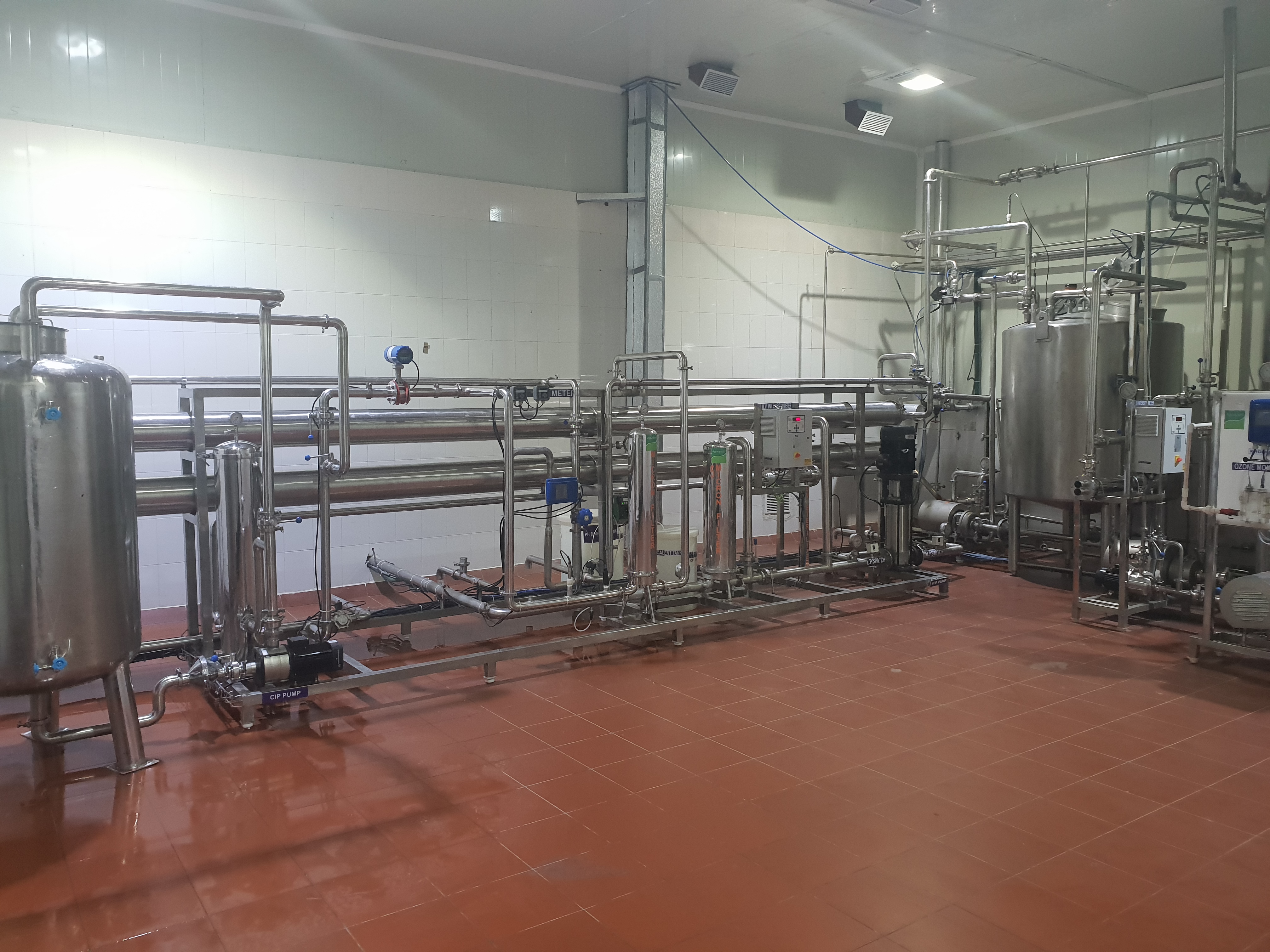ELECTRO DEIONISATION (EDI) SYSTEM
Electro-Deionization is a combination of Ion-exchange resins, Ion-exchange membranes and direct current to continuously deionize water without using chemicals.
It’s a self-regenerating process that provides a consistent flow of high-quality deionized water. The elimination of regeneration chemicals reduces operating cost and cost of waste handling of hazardous chemicals.

RO (reverse Osmosis) is used prior to EDI either with Single or 2 Pass depending on the Raw Water Parameters.
Aguapuro RO-EDI’s High Purity Electro-deionization systems are used for a wide variety of applications including critical boiler make-up, microelectronics, and critical purity manufacturing. These systems are available in a range of capacities and can be furnished as containerized or skid-mounted systems.
Specifications:- Pre-treatment of Water for RO System
- Dosing Systems for pH Corrections
- RO System (Single or Double Pass)
- Electro-Deionization System
- Piping & Valves for complete System
- Electrical Panel with HMI & PLC for easy operation
- Instruments to measure TDS, pH, Conductivity, Flow, Pressure etc.
- Electrical Conductivity : < 40 micro S/cm
- pH : 7.5 – 8.5
- Total Hardness : < 1 ppm as CaCO3
- CO2 : < 1.0 ppm
- Electrical Conductivity : < 0.2 – 0.05 micro S/cm
- Leak free & robust EDI component designs that are modular & scalable.
- No need of resin exchanges or hazardous chemicals.
- High Purity Water production on continuous basis.
- Easy operation equipped with auto monitoring & voltage control system
- HMI – SCADA—DCS direct connections available.
- Resin field concentrate & dilute chambers for highest production quality.
- Very lowest power & operating cost.
- Corrosion-proof components for wetted parts.
- Typically >18 MΩ-cm product water; >99% Sodium and >95% Silica removal
- Any Process Requiring High Purity Water
- Power Plants & Boiler Feed Water
- Combustion Turbine Power Augmentation (Wet Compression)
- Manufacturing Process Water use
- Glass Production, Electronics & Metal Finishing, etc.
- Hydrogen Generation from Electrolysers
